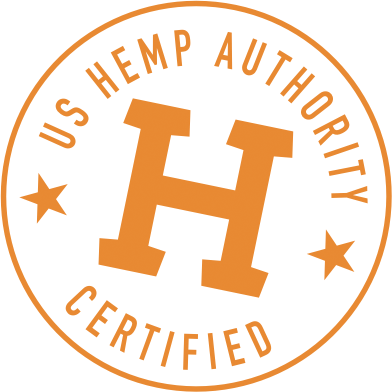Revised voluntary hemp guidelines set to take effect
The president of the U.S. Hemp Authority—Marielle Weintraub—suggested the revised guidelines reflect a greater focus on compliance with current federal regulations.
.png?width=850&auto=webp&quality=95&format=jpg&disable=upscale)
Revised guidelines adopted by the U.S. Hemp Authority will take effect in January 2020, marking another effort by the nascent but fast-growing industry to establish credibility with the public through a certification program headed into its second year.
When asked how the guidelines have changed, the president of the U.S. Hemp Authority—Marielle Weintraub, Ph.D.—suggested they reflect a greater focus on compliance with current federal regulations, including, for example, 21 C.F.R. 111, the cGMPs (current Good Manufacturing Practices) governing dietary supplements.
“We have tightened up the base of what you need to be compliant with,” she said in an interview.
“The baseline for U.S. Hemp Authority certification,” added Joy Beckerman, first vice president of the U.S. Hemp Authority, “is compliance with all state and federal laws regulating the manufacture, packaging, labeling and holding of dietary supplements, food and cosmetics.”
Already, more than 50 companies have been awarded the certification seal of the U.S. Hemp Authority through its initial guidelines known as “Guidance Procedures 1.0.”

“I commend the U.S. Hemp Authority for all that they’re doing,” said Jason Mitchell, co-founder and president of HempFusion, one of the companies certified by the U.S. Hemp Authority, in an interview. He described the organization’s certification criteria as “crucially important.”
Stuart Titus, Ph.D., is president and CEO of Medical Marijuana Inc., which also has been certified by the U.S. Hemp Authority. In an interview, he described certification as “a great move for us within the industry,” potentially increasing the sector’s “legitimacy, particularly for those well informed customers who want the highest quality, highest grade products.”
Following initial public consultation, a technical committee—comprised of hemp leaders from what Beckerman described as “every discipline you can imagine”—prepared revised draft guidelines. The draft guidelines drew more than 2,000 comments.
Jane Wilson, director of program development at the American Herbal Products Association (AHPA), noted the U.S. Hemp Authority incorporated a “wider group of voices” in soliciting input on the 2.0 guidelines.
AHPA and others, Wilson said, pushed for the U.S. Hemp Authority to incorporate existing dietary supplement regulations in the 2.0 guidelines. Although the initial guidelines incorporated many GMP requirements, “there wasn’t a direct link to say, [21 C.F.R. 111] for supplement products,” she said in an interview.
“We think the baseline has to be compliance with existing regulations,” Wilson explained. “If you’re labeling … a hemp extract as a dietary supplement, it should be meeting those baseline regulations as well.”
The certification program—and revised guidelines—are ostensibly a benefit to retailers of hemp products.
“Retailers have a much easier way of vetting products than they did before, other than looking through hundreds and hundreds of CoAs (certificates of analysis),” Weintraub said.
Companies seeking certification must undergo a third-party audit through Validus. Auditors are being sent to farms and manufacturing facilities to ensure compliance with the guidelines, Weintraub said.
Vertically integrated companies enrolled in both the grower and processor/manufacturer programs must endure separate inspections on separate dates for each seal, while grower inspections must be conducted while the hemp remains in the ground and not after harvest, according to a Q&A about the certification program.
“This is a no-fooling-around audit,” Beckerman said in an interview.
The revised guidelines include several notable changes specific to hemp. Among the revisions:
“There was a big push to make sure that genetically engineered hemp was prohibited from our program,” Weintraub said. People seeking certification must sign an affidavit that they will not use genetically engineered hemp.
On the other hand, companies that use non-hemp GMO ingredients can be certified through the U.S. Hemp Authority. But they must disclose the ingredients on the label. “The idea,” Weintraub explained, “is to increase the transparency of our products.”
The new guidelines incorporate a glossary that defines such terms as “adulteration,” “bioengineered” and “broad spectrum.” Companies placing such terms on their labels and in marketing materials must use them consistent with the definitions in the guidelines, officials from the U.S. Hemp Authority said. FDA officials have expressed interest in the specific meaning of terms like “broad” and “full” spectrum.
The country of origin where the hemp was grown must be disclosed on the label. Again, Weintraub said, this requirement is intended to foster transparency so consumers can make informed decisions. Some U.S. marketers of hemp-based products continue to source the plant from Europe, for example, rather than the United States. “We don’t want to be misleading,” Beckerman added. “We’re calling ourselves the U.S. Hemp Authority, and we don’t want consumers to assume” the products they are using derive from U.S.-grown hemp.
The U.S. Hemp Authority is only certifying cannabinoids derived from the hemp plant. Synthetic and biosynthetic cannabinoids are excluded from the certification program. “We don’t believe that synthetic cannabinoids have any real place in the food chain,” Beckerman explained.
Jonathan Miller is general counsel to the U.S. Hemp Roundtable, sister organization to the U.S. Hemp Authority.
The U.S. Hemp Authority is holding “the industry to high standards in the absence of FDA regulations,” Miller said in an interview. The standards, he added, give consumers and law enforcement confidence that certified companies “are producing safe and legal products.”
Titus of Medical Marijuana offered a similar assessment, concluding certifications are “necessary for us to prove to the general public that … our products are safe and well tested.”
About the Author(s)
You May Also Like






.png?width=800&auto=webp&quality=80&disable=upscale)